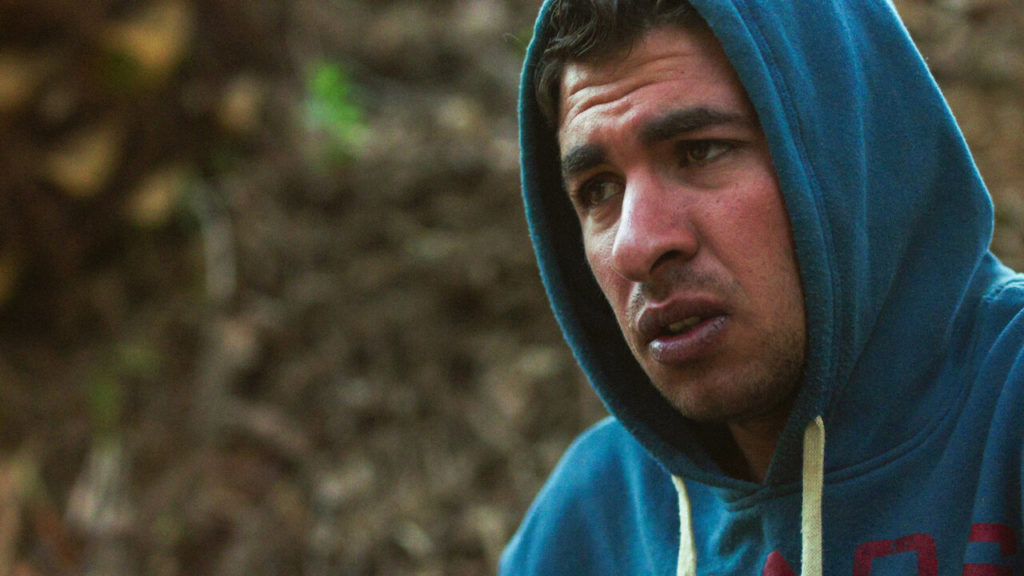'The Invisible Man' (2020): The Hiddenness of Domestic Abuse
The 2020 remake of 'The Invisible Man' explores the hidden nature of domestic violence with a classic sci-fi character.
Incluvie Foundation Gala - Learn More


When I say refugee crisis, what do you envision?
For many, no doubt, there will be images of innocent families and individuals, men, women, and children (and pets) fleeing war-torn, violent countries. They will have come from faraway places and survived unthinkable obstacles, only to be turned away at borders. Turned away from sociopolitical jargon that amounts to: “it would be a little hard on us, can you see what the other countries are saying first?”
Then, begrudgingly (in the best cases) the refugees are let inside. But, like many sociopolitical issues, we often take a “happily ever after” approach to emigration. Rarely, are we treated to any meaningful discussion of what is the plan for these people? Not statistics or political points, people. What happens when there is no real plan or agency for refugees?
A Drowning Man (2017) answers that question. In, 15 far-too-short minutes, viewers are given a detailed snapshot of what it’s like for a refugee to drown in the waters of poverty and otherness while trying to navigate a land whose promise has worn off, and only ‘strange’ remains.

Our protagonist is ‘The Kid’, a drowning man in a strange land. He is decidedly in Europe, but the location could be anywhere that is pretty in promises, and harsh in reality. Many have identified the filming location as Greece, but this remains unimportant to focus on. The Kid is a Palestinian refugee who is trying to survive one more day among a sea of predators and frenemies alike.
We start our story with The Kid waking up, splashing some water on his face and having a cold drink of water, sobering himself up for another day of survival on the mean streets. His pleas to his flatmates for 5 euros go on annoyed ears, who dismiss him acidly. Whether this is because he begs daily or just cold indifference is left open, and ultimately it does not matter. Mahdi Fleifel, the director and writer, shows us that the impoverished are often denied kindness. His pleas could have just as easily been dismissed compassionately or at least neutrally. Yet, they repeatedly told him to “get off their balls”.
This becomes a crude and cruel foreshadowing of the climax.

The Kid makes his way out into the streets and meets the same energy that his flatmates and friends gave him, causing this viewer to question whether his flatmates are his actual friends or just people stuck in a situation with him. The Kid wants coffee and some food and barring that, at least a cigarette to calm his hunger pangs. Naturally, he goes on invisible until he annoys someone enough to become visible and dismissed.
Smelling blood in the water, predators soon begin to encircle The Kid. He is a wounded prey and is primed by the survival instinct to do whatever he must to make it one more day. A nondescript bully and thug, Bis, insinuates that The Kid owes him money. When that tactic doesn’t work, he “asks for a favor” in exchange for helping The Kid: steal a pair of sneakers from the shoe store in broad daylight! Assume the risk of incarceration, bodily harm, and possible deportation for one meal.

Easy peasy! Fleifel shows the dire straits and impossible decisions that many impoverished people are forced to choose from. He reminds us that this is a starving man who steals a loaf of bread.
Things don’t go as planned, naturally, and The Kid gets nothing for his trouble but a “get off my balls”, as he desperately begs a dismissive Bis for food or at least a cigarette. The Kid next tries to sleep off the hunger, as many starving people do, and finds himself approached by another predator. As the image above shows, we never get a good look at this predator. He is camouflaged like a marine predator, dark on top and lighter below, obscuring his image from an aerial view or a subaquatic one. He seems friendly, even using his dog to strike up a conversation. He gives him a cigarette. He sees The Kid. He has no money on him now, but if The Kid will only come home with him. . .
It is as bad as it sounds.
The movie ends with The Kid finally having something to eat and drink. Before he chucks his half-smoked cigarette into the sea. Our final image is a submersion into the sea. For us, the viewers, the story has come to a close. For The Kid, the struggle to break above the waves will begin anew tomorrow.

Director, Mahdi Fleifel, has captured humanity in the Refugee Crisis in his short drama. Atef Alshafei portrays The Kid without fluff nor romanticism. Fleifel leaves the character and the setting open so that they become vehicles for the viewer to ride in. Films like these are timely and necessary. They speak to how beliefs in Hollywood endings and plots can sometimes obscure real human suffering. Fleifel is also not anvilicious; he allows the viewer to see the predator and prey relationships, and draw their own conclusions. It would be foolish to believe that he does not mean for you to root for The Kid; however, Fleifel seems to understand that no amount of browbeating makes everyone do the right thing all the time.
I urge viewers to check out Fleifel’s other films on the unseen aspects of the Refugee Crisis: A Man Returned, 3 Logical Exits, I Signed The Petition, and A World Not Ours.
Related lists created by the same author
The 2020 remake of 'The Invisible Man' explores the hidden nature of domestic violence with a classic sci-fi character.